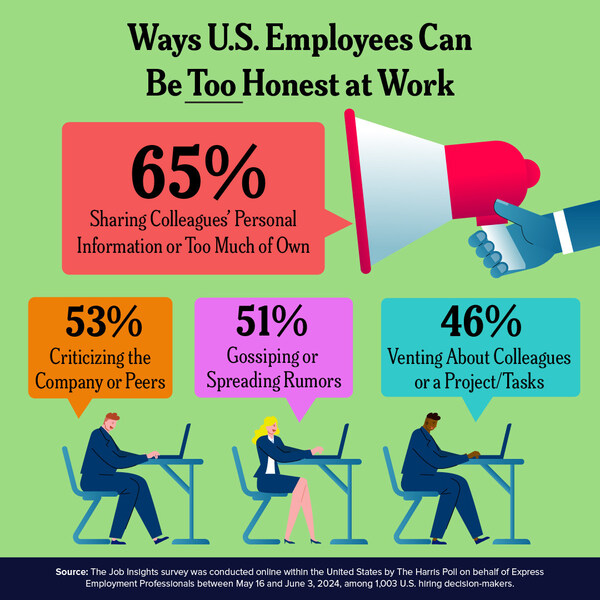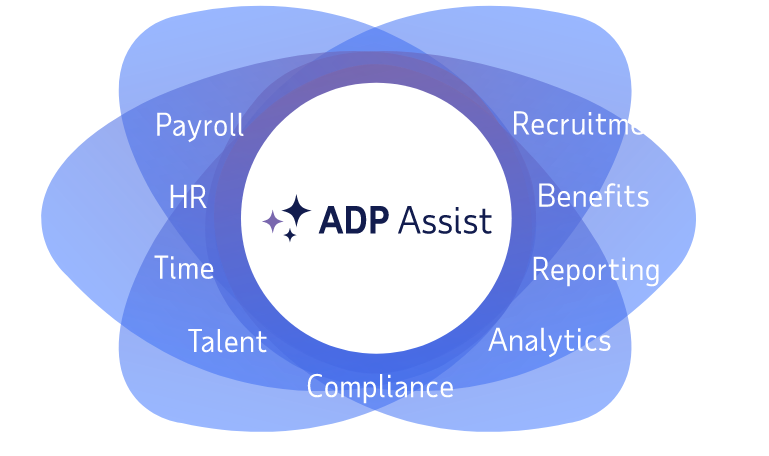While honesty is often touted as the best policy, it is possible to be too honest in the workplace. Many companies pride themselves on creating environments where employees feel safe to speak openly. However, the complexities and potential pitfalls of excessive honesty are becoming increasingly apparent.
This is according to a recent Express Employment Professionals-Harris Poll survey. While honesty is crucial, the wisdom to communicate thoughtfully is equally important.
Most U.S. hiring managers believe their companies have successfully cultivated an environment promoting honest employee communication. An impressive 86% report that their organizations have created a safe and trusting atmosphere, while 80% affirm that the right systems and tools are in place to facilitate constructive criticism.
In fact, an overwhelming 95% of respondents feel that employees can speak openly with anyone in the company about their concerns or issues, with managers/supervisors (68%) and peers/colleagues (57%) being the most common points of contact.
However, conversations about employees’ personal lives can be more complex.
While 70% of hiring managers believe employees should feel comfortable discussing personal issues with their manager if they impact their work, nearly 39% find it challenging to help employees navigate these issues (e.g., health, relationships, finances) to improve productivity.
Thirty percent also report difficulty in helping employees set professional boundaries to prevent personal issues from affecting their work. This difficulty may stem from a lack of training, as 39% of hiring managers say their company does not provide resources or training on managing employees’ personal issues. Furthermore, 67% feel that discussing personal matters at work hinders productivity.
The Fine Line of Workplace Honesty
More than half of hiring managers (54%) disagree with the notion that employees can never be “too honest” at work and identify several ways in which employees can be excessively honest, such as sharing personal information about colleagues or themselves (65%), criticizing the company or colleagues (53%), gossiping or spreading rumors (51%) and venting about colleagues or projects (46%).
Examples of overly honest behavior reported by hiring managers include:
- “Talked negatively about our manager, stating she is a loser and does not pull her weight.” — 29-year-old female hiring manager from a company with 500+ employees
- “An employee shared their extramarital experience with me, and the spouse worked in my department.” — 55-year-old male hiring manager from a company with 10-49 employees
- “Someone told me they had a crush on me, which was very inappropriate.” — 32-year-old female hiring manager from a company with 100-499 employees
- “They said the CEO was never working and was too old for the job.” — 50-year-old male hiring manager from a company with 500+ employees
- “They commented that my clothes fit better before I had my child, which was uncalled for. I was 10 weeks postpartum.” — 32-year-old female hiring manager from a company with 500+ employees
And it appears that too much honesty can have damaging impacts, as nearly two-thirds (65%) feel being “too honest” at work will damage an employee’s professional reputation.
Balancing Honesty and Professionalism
Job seekers also say honesty can negatively impact workplace productivity and an employee’s reputation, with 54% disagreeing that employees can never be “too honest” at work.
There is a generational divide, with Gen Z and millennial job seekers more likely to agree than their Gen X and boomer counterparts (55% and 52% vs. 36% and 33%, respectively).
Almost 65% of job seekers agree discussing personal issues at work hinders productivity, and 71% believe that being “too honest” can harm an employee’s professional reputation.
Additionally, 89% of job seekers agree that it is important for younger generations to learn when it is appropriate to be honest in the workplace, with millennials, Gen X and boomers more likely to agree compared to Gen Z (89%, 95%, and 96% vs. 79%).
“While honesty is crucial, the wisdom to communicate thoughtfully is equally important,” said Bill Stoller, Express Employment International CEO. “In a professional setting, discerning what to share and keep private is key. It’s important to remember that some personal situations are best discussed with confidantes outside of work.”
Thanks for reading CPA Practice Advisor!
Subscribe Already registered? Log In
Need more information? Read the FAQs
Tags: Firm Management, Payroll




